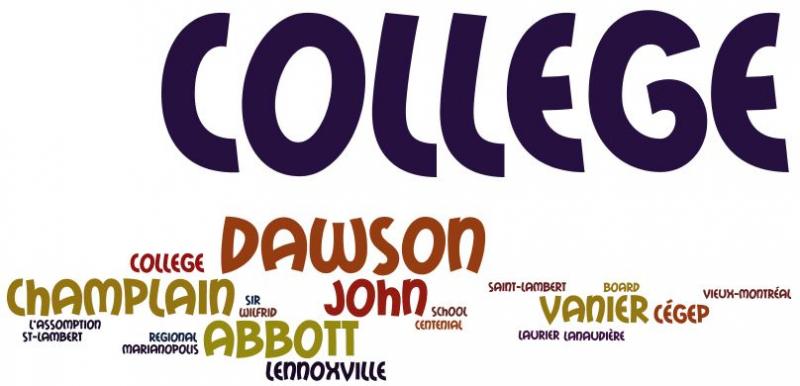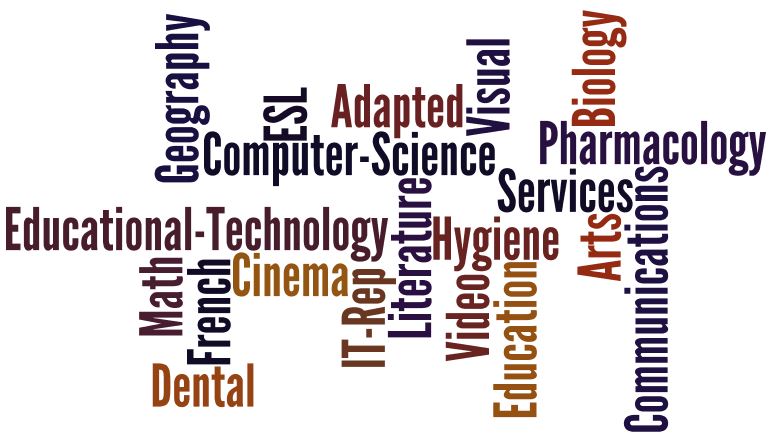Step Active Learning: Planning for Student-Centered Pedagogy
In this session, SALTISE introduced some basic principles of Active Learning as well as misconceptions teachers have about student's learning through an active demonstration. Then we discussed how to move forward with Active Learning and Information and Communication Technology (ICT).
Active Learning, Universal Design for Learning (UDL) in collaboration with Technology
In this session, Supporting Active Learning & Technological Innovation in Science Education (SALTISE) introduced some basic principles of Active Learning as well as misconceptions teachers have about student’s learning through an active demonstration. Then we discussed, all together, how to move forward with Active Learning and Information and Communication Technology (ICT).
We had the pleasure to welcome four experts in the first session of this VTE laboratory:
- Elizabeth Charles, Dawson College, SALTISE
For the last 9 years she has been involved with research in the areas of pedagogical innovation & developments in information technology and how these applications can promote and enrich student learning. - Nathaniel Lasry, John Abbott College, SALTISE
He decided to pursue advanced studies and research in education after being shocked by the disconnect that his students perceived between abstract classroom-physics and the view of physics as embedded in the real-world. - Chris Whittaker, Dawson College, SALTISE
His teaching style has changed dramatically in the last 10 years. He started teaching as he had been taught, but once he saw the dramatic results of Physics Education Research, he was forced to re-examine his pedagogy. What else could a scientist do? His teaching is now focused on cognitive engagement instead of information transfer. He now see teaching as a process of orchestrating learning through a careful script of activities that engages students to think more deeply. But change is hard, and it takes time. He has enjoyed spearheading the development of several active learning classrooms at Dawson College, including a technology-rich inter-active SMART Learning classroom that features groups of students who have their own SMART Boards that serve as a shared tool for exploring and constructing knowledge. - Roberta Thomson, Course Instructor, McGill University and LaSalle College
She is a strong believer in the power of assistive technology to transform lives and educational environments as well as an advocate for Universal Design for Learning (UDL). She is a course instructor at McGill University/LaSalle College and has been actively involved in creating active learning and accessible classrooms. One of the courses she teaches at McGill is on assistive technology (AT) – including UDL in the Certificate of Inclusive Education program. She has a wide knowledge base of a variety of technologies/AT and the best practices for their implementation in classroom settings as well as UDL. She has recently begun working as the Project Coordinator for the Chantier 3 Grant from Ministère de l’Enseignement supérieur, de la Recherche, de la Science et de la Technologie (MERSRT) of Québec whose focus is a collaborative endeavor with five post-secondary Montreal area institutions – Centennial College, Dawson College, John Abbott College, Marianopolis College and McGill University as the lead.
- Introduction to basic principles of Active Learning with Elizabeth Charles.
- Misconceptions teachers have about student’s learning with Nathaniel Lasry.
- Active demonstration including videos and games with Nathaniel Lasry and Chris Whittaker.
- What can we do to move forward with Chris Whittaker.
- Open discussion of what SALTISE has done with Elizabeth Charles.
- Open discussion about Information and Communication Technology (ICT) integration with Roberta Thompson
- How about participating in a short collaborative ABC of active learning?
For the first time, in collaboration with John Abbott College, Vanier College and Dawson College, we welcomed teachers and pedagogical advisers who attended locally all together in a dedicated room. Thank you for all attendees as well as partners who stopped by yesterday!
You will see below the illustration of a wide participation from various establishments from across Québec.

Et then, here’s an illustration of the various disciplines represented during this first session about Active Learning:

A collaborative practical active learning guide is elaborated. We will publish it soon.
In the meantime, don’t forget to have a look at these related articles.
Looking forward to seeing you online!
